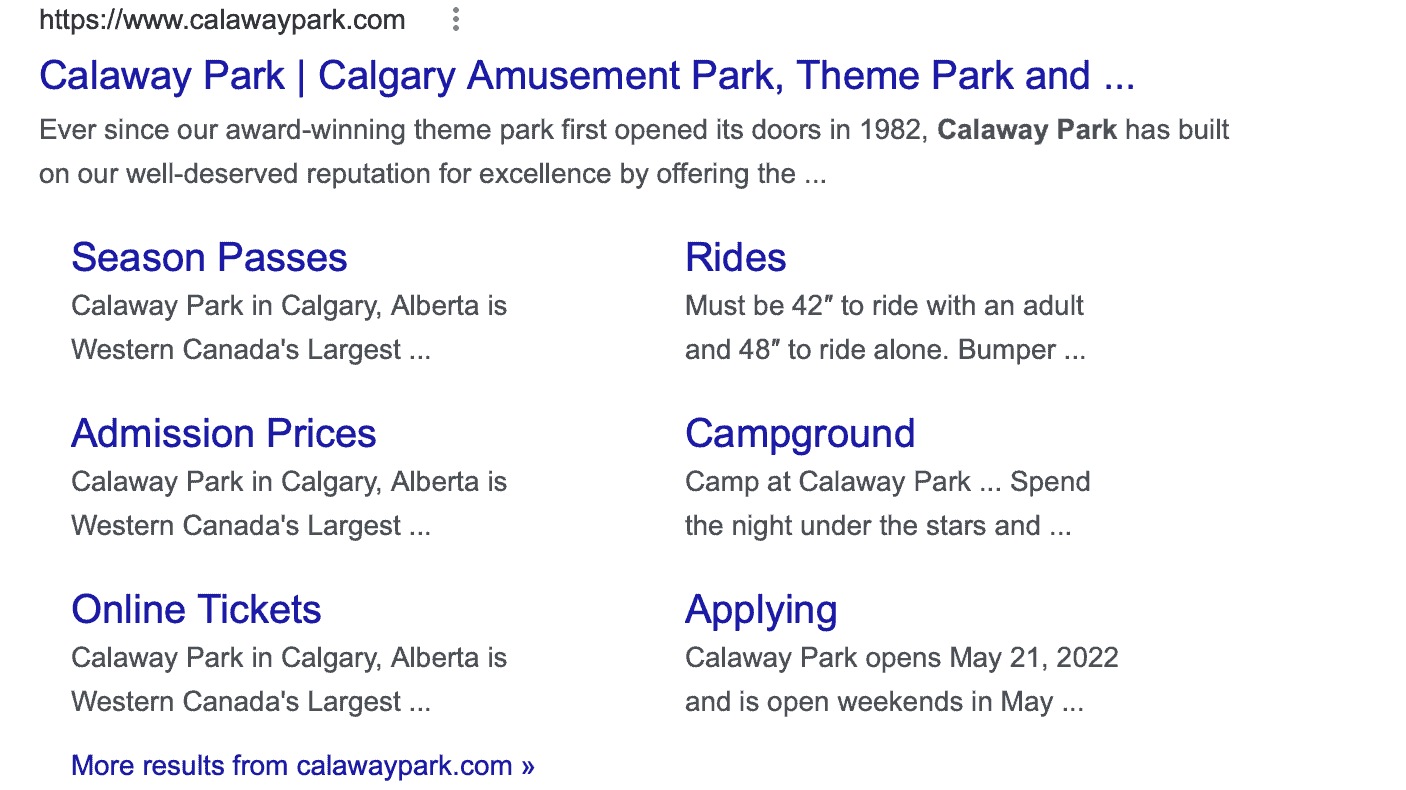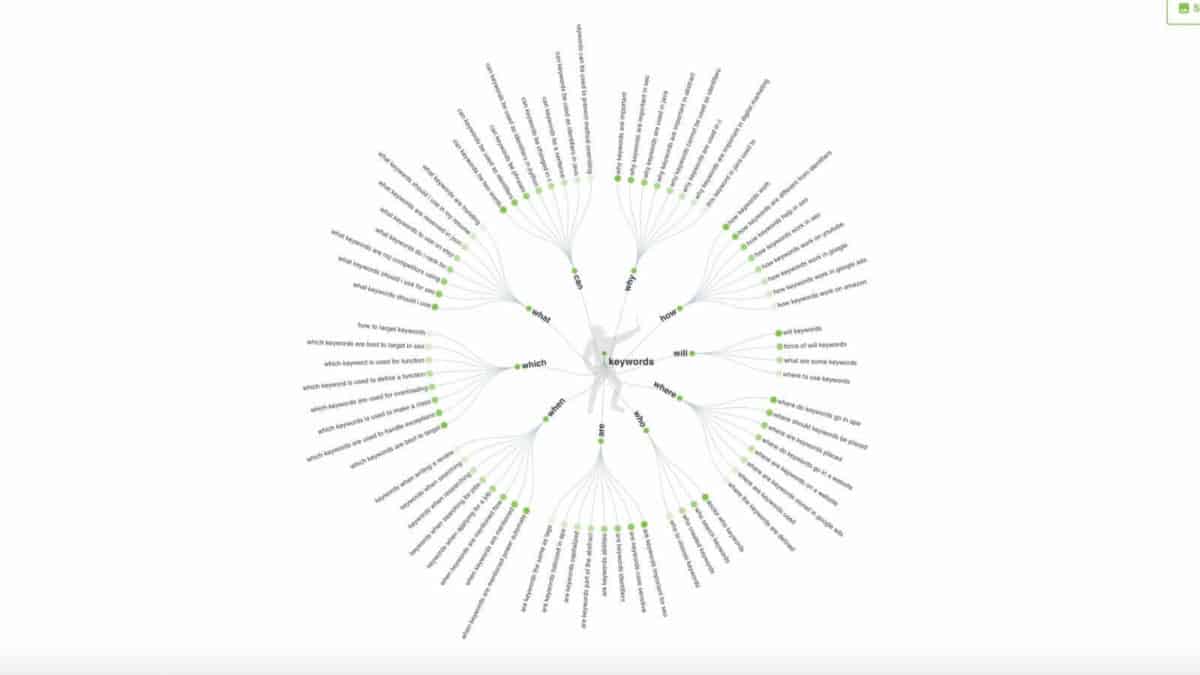If you’ve ever read anything about website development or search engine optimization (or sat next to some Peak Ed Designs nerds at pub night), you’ve probably heard the term keyword, and maybe even wondered what it meant. So what is a keyword? What about a long-tail keyword? How can the careful selection of SEO keywords help you gain website traffic and grow your business? Keep reading and find out!
Table of Contents
What’s a Keyword?
A keyword is a word or phrase that people use when searching for something online. Also known as a search query, a keyword is whatever a searcher types into Google or another search engine when they’re looking for something. Chances are you’ve done so today. They can take many forms, including single words, phrases, problems, or questions. Perhaps you’ve searched “ice cream” or “my bike chain keeps coming off” or “how many goals did Jerome Iginla score in 2004?”. The search engine will respond by pointing you in the right direction with a search engine results page (also known as a SERP).
Why are Keywords Important?
Search Engines
If you’re looking to grow your business, you’ll want to draw as many people as possible to your website, particularly if they’re in the mood to buy what you’re selling. Unless they’re clicking on a Google ad or social media link, or know your URL by heart, they’re probably arriving via a search engine.
The proper utilization of keywords is a big part of helping search engines know what you’re about. Furthermore, by including the keyword in your page title or search engine results page description, you’ll be able to entice interested parties to make the click and come on in.

How Do I Know Which Keywords to Use?
Keyword Research
This is one part art and one part science. When starting your keyword research, start a list of keyword ideas (1 or 2 words) by thinking like your target audience thinks. What are their wants and needs? What types of search queries might they use if they’re actively seeking what you’ve got? What about people who need your goods or services, but simply don’t realize it yet? What are their interests? What might they be searching for? These short keywords are sometimes referred to as seed keywords.
Keyword Research Tools
There are also a host of tools that can be used to assess your seed keywords with stats to help with your keyword research. Google’s keyword planner lets you know how often individual keywords and phrases are searched (the search volume) and how stiff the competition is (keyword density). Answer the Public provides lists of frequently searched questions that include a given keyword and keyword suggestions. Google Trends can help you find search terms that people are looking for. Paid tools like SEMRush provide a host of related services to find the right keywords. Even when you begin a search in Google, the keywords and phrases that displays with Google’s autocomplete tool are potentially relevant keywords that you can use.

Do You Recommend Any Particular Strategies?
One strategy involves using long-tail keywords, which are search query variations of a seed keyword. These keywords are searched less frequently, but there is generally less competition to compete for. In fact “long-tail keywords” and “SEO keywords” could themselves be classified as long-tail keywords, which might explain their presence in this article.
Another trick is to simply search for your ideas. If the search results page looks like a place your site would fit in, then it might be a good keyword to use. If, on the other hand, the results page is filled with news items or instructional videos and this doesn’t align with your content, it means that the search engine has determined that the keyword is primarily used by those looking to inform themselves, not necessarily act at this point. (Those looking to utilize a more robust content strategy often involve themselves in this stage of the search by keeping a well-maintained blog or YouTube channel. Hint: use a content calendar!)
How Many Keywords Do I Need?
That depends on the size of your website and the scope of what you offer. Generally speaking, you’ll want to keep it simple and focus on one main keyword or phrase per page when you start. Google displays content that best answers a search query, so it’s best to be direct and not ramble. That doesn’t mean that you can’t include a few related keywords sprinkled in for good measure. The goal is to provide content that is well thought out to help your target audience.
What Do I Do With Keywords?
Search Engine Optimization
This is part of your larger search engine optimization strategy. As previously mentioned, using a specific or target keyword in your page title and summary can be helpful to search engines and humans alike. Search engines also like it when you use those phrases in subheadings (such as “What Do I Do With Keywords?”)
Beware of keyword stuffing, however. It wouldn’t be right if we’d put the term “keyword” in this article over and over in a shameless attempt to lure you here unless the article was actually about keywords (which, of course, it is). Search engines have grown increasingly hip to such tricks, and will punish you accordingly. That’s the reason why you currently see far fewer web pages saying things like “we have great keyword advice, just ask Kim Kardashian cheap San Francisco hotels fidget spinners.” Are fidget spinners still a thing?
Next Steps
Peak Ed Designs wants to build you a website that will not only be spectacular but also visible! That’s why we start each project with a discussion about your value proposition, your goals, and your customers. We then conduct keyword research so that we can optimize each page of your website and help you get found!
I want a website that will get found and get me business!

